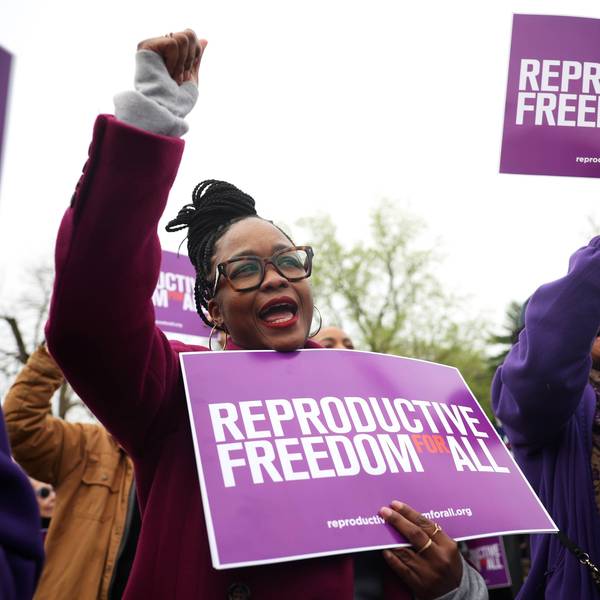Tennessee Governor Bill Haslam signed a new measure into law on Monday that forces women seeking abortions to wait 48 hours after a mandated in-person "counseling" session with a doctor in order to undergo the procedure.
HB 977 (pdf), sponsored by Rep. Matthew Hill (R-Jonesborough), makes Tennessee the 27th state to require patients seeking abortions to wait longer than 24 hours before having an abortion, according to (pdf) the Guttmacher Institute. At 48 hours, the waiting period is one of the longest in the nation. Opponents of the bill, including Planned Parenthood, have criticized lawmakers for crafting the legislation without consulting the medical community.
The new measure states that, barring a medical emergency, and with no exceptions for rape and incest, "no abortion will be performed until a waiting period of 48 hours has elapsed after the attending physician or referring physician has provided information" about the procedure.
However, as health advocates have noted, the information which physicians are required to provide comes from the state and is medically unfounded.
According to RH Reality Check, "In the last few years, state legislatures have been passing abortion restrictions largely based on unfounded theories that abortion is a dangerous procedure that significantly increases women's risk of developing breast cancer and mental health disorders, among other claims."
Under HB977, physicians who do not acquiesce to the new rules could face misdemeanor or felony charges. They also risk having their medical licenses revoked.
The bill "adds pointless burdens to women while doing nothing to protect them," said Planned Parenthood of the Greater Memphis Region in a statement on Monday. "It is a tool to shame and disgrace women who make the deeply personal decision to end a pregnancy. And it creates unnecessary financial and emotional hardships."
"This bill is part and parcel of the political strategy to pass laws in our state that are purported to protect women's health and safety, but in fact do quite the opposite," Planned Parenthood continued.
Gov. Haslam, a Republican, also signed a bill earlier this month that requires all clinics that perform 50 abortions or more annually to be regulated as outpatient surgery centers--a measure that has forced clinic closures in other states.
Currently, Tennessee only operates seven abortion clinics statewide. Women may have to travel 100 miles or more to reach one of those clinics, according to Anita Wadhwani of The Tennessean.
"Requiring them to make that trip twice will require time off work, child care and travel expenses that place an especially heavy burden on low-income working mothers, according to advocates who also argued that no other medical procedure has a mandatory waiting period in the state," Wadhwani writes. "Nationally, nearly two thirds of women seeking abortion already have at least one child at home."
Both of the new restrictive laws will go into effect July 1.



